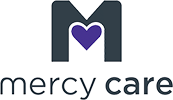
Comprehensive Mental Health Treatment Through Therapeutic Modalities
Your Lifeline to the Life You Deserve
Healing isn’t one-size-fits-all. The path to mental wellness looks different for everyone, which is why Lifeline Behavioral Health offers a wide range of therapy sessions tailored to each person’s unique needs. Whether you’re navigating anxiety, depression, trauma, or other mental health conditions, our evidence-based types of therapy provide the tools to rebuild emotional well-being, regain balance, and create a fulfilling life.
At Lifeline Behavioral Health, we believe that healing happens through self-discovery, professional support, and evidence-based therapy. If one approach hasn’t worked in the past, that doesn’t mean hope is lost. There are many therapeutic modalities to explore, and we’re here to help you find what works best for you.

What Are Therapeutic Modalities?
A therapeutic modality is a structured method of treatment that helps individuals understand, process, and manage their emotions, behaviors, and mental health challenges. Some types of therapy focus on changing thought patterns, while others emphasize emotional regulation, trauma healing, or creative expression. The goal is to find a therapy that resonates with you, helping you feel seen, supported, and empowered.
Some people benefit from structured talk therapy, while others may find healing through movement, art, or mindfulness-based techniques. No matter where you are on your journey, there is a path forward and we will help you find it.
A Lifeline to the Life You Deserve
Taking the first step toward healing is powerful, and our team is here to guide and support each client every step of the way.
How We Treat
A Personalized Approach to Healing
At Lifeline Behavioral Health, we offer individual and family therapy sessions designed to help individuals and their loved ones develop coping skills, emotional regulation, and resilience. Our expert clinicians match you with the right therapy sessions based on your personal experiences, goals, and challenges.
Cognitive Behavioral Therapy (CBT)
Reshaping Negative Thought Patterns
CBT is a proven, results-driven therapy that helps individuals identify and challenge negative thoughts that contribute to anxiety, depression, and emotional distress. This approach teaches practical strategies to shift perspective, regulate emotions, and develop healthier coping mechanisms.
If you often feel stuck in negative thinking patterns, CBT can help you retrain your mind, breaking the cycle of self-doubt and distress.
Dialectical Behavior Therapy (DBT)
Managing Intense Emotions
DBT is ideal for individuals who experience overwhelming emotions, relationship challenges, or self-destructive behaviors. This therapy teaches mindfulness, distress tolerance, emotional regulation, and interpersonal skills to help you feel more in control of your emotions.
If emotional highs and lows make daily life difficult, DBT can provide structure, balance, and self-awareness.
Eye Movement Desensitization and Reprocessing (EMDR)
Healing Trauma
Trauma lives in the mind, but also gets stored in the body. EMDR is a specialized therapy for PTSD, anxiety, and trauma recovery that helps reprocess distressing memories. Using guided eye movements, EMDR allows the brain to process trauma in a way that reduces its emotional intensity, freeing individuals from past pain.
If you feel trapped by past experiences, EMDR can help you reclaim your sense of safety and peace.
Acceptance and Commitment Therapy (ACT)
Embracing Your Emotions
ACT encourages individuals to accept their emotions rather than fight against them. This therapy focuses on living in alignment with your values, even when faced with discomfort. By practicing mindfulness and self-acceptance, ACT helps people build resilience and take meaningful steps toward a fulfilling life.
If you struggle with self-doubt, avoidance, or emotional pain, ACT can help you embrace change and move forward with confidence.
Schema Therapy
Breaking Free from Old Patterns
Many of our behaviors and beliefs are shaped by early life experiences. Schema therapy helps individuals recognize and heal deep-rooted emotional patterns, allowing them to break free from self-destructive cycles and create healthier relationships with themselves and others.
If you’ve struggled with low self-esteem, abandonment fears, or recurring negative patterns, schema therapy offers a holistic approach to healing.
Psychiatric Care & Medication-Assisted Treatment (MAT)
Finding Stability
For some individuals, therapy alone may not be enough. Psychiatric care and medication-assisted treatment provide additional support for those managing depression, anxiety, or mood disorders. Our team works closely with clients to ensure that any prescribed medication enhances therapy outcomes without becoming the sole focus of treatment.
If you need extra support to manage symptoms, our psychiatric care team will help you explore safe, effective treatment options.
Somatic Experiencing
Releasing Trauma from the Body
Trauma affects the nervous system, not just the mind. Somatic Experiencing helps individuals reconnect with their bodies, releasing stored trauma and reducing anxiety and stress. This therapy is particularly beneficial for those who experience chronic tension, panic attacks, or physical symptoms of trauma.
If traditional talk therapy hasn’t worked for you, Somatic Experiencing offers a body-centered approach to healing.
Internal Family Systems (IFS)
Understanding Your Inner World
IFS therapy helps individuals explore different “parts” of themselves, allowing them to heal from inner conflict, self-judgment, and emotional wounds. This approach fosters self-compassion, emotional clarity, and personal growth.
If you struggle with self-doubt, inner turmoil, or past trauma, IFS can help you develop a deeper sense of self-awareness and healing.
Family Therapy
Healing Together
Relationships within a family can impact mental health. Our family therapy sessions help loved ones strengthen communication, resolve conflicts, and build healthier relationships. Whether dealing with stress, trauma, or behavioral challenges, family therapy provides tools for deeper connection and healing.
If family relationships feel strained, family therapy offers a structured, supportive space to rebuild trust and understanding.
Inner Child Work
Healing the Past
Relationships within a family can impact mental health. Our family therapy sessions help loved ones strengthen communication, resolve conflicts, and build healthier relationships. Whether dealing with stress, trauma, or behavioral challenges, family therapy provides tools for deeper connection and healing.
If family relationships feel strained, family therapy offers a structured, supportive space to rebuild trust and understanding.
SFT (Solution-Focused Therapy)
Moving Forward with Clarity
Life often presents challenges that can feel overwhelming. Solution-Focused Therapy helps individuals focus on the present and future, identifying strengths and resources to overcome obstacles. This goal-oriented approach empowers you to find practical solutions and make meaningful changes.
If you’re ready to shift your focus to solutions and build a brighter future, SFT can help you take the next step with clarity and confidence.
Motivational Interviewing
Empowering Change from Within
Making lasting change can feel daunting, especially when you feel stuck. Motivational Interviewing is a collaborative, client-centered approach that helps individuals explore their ambivalence and tap into their intrinsic motivation for change. This technique fosters self-motivation and guides you toward aligning your values with your actions.
If you’re ready to embrace change but feel unsure, Motivational Interviewing helps you unlock the motivation and confidence needed to move forward.
Trauma-Informed Care
Compassionate Support for Healing
Healing from trauma requires more than just talk therapy. It requires an understanding of the lasting impact trauma can have on the mind and body. Trauma-Informed Care prioritizes safety, trust, and empowerment, creating a supportive environment where you can process and heal from past experiences.
If trauma still affects your well-being, Trauma-Informed Care provides a compassionate approach to help you feel safe, supported, and ready to heal.
Trauma Group
Support Through Shared Experience
Trauma can leave you feeling isolated, but you’re not alone in your experience. Trauma Group Therapy offers a supportive community where individuals who have experienced similar challenges can share their stories, learn coping strategies, and heal together. This safe space promotes healing through shared understanding and emotional support.
If you’re seeking connection with others who understand your journey, Trauma Group Therapy helps you find strength in shared experiences and collective healing.
Expressive Therapy
Healing Through Creativity
For some, words alone aren’t enough. Music therapy, art therapy, drama, and photography provide powerful ways to process emotions, reduce stress, and enhance self-expression.
If you’re looking for a non-traditional approach, expressive therapy offers a creative outlet for healing.
No Insurance? No Problem.
Not everyone has insurance, and that shouldn’t stand in the way of getting help. We offer cash pay options for all services, making care more accessible and straightforward. Many clients prefer cash pay for its flexibility, especially for lower-cost treatments. Reach out to explore your options and get started today.
Client Successes
Find Hope. Find Healing. Find Your Lifeline.
Your mental health journey is unique, and there is no single path to healing. At Lifeline Behavioral Health, we offer individualized treatment, compassionate care, and a wide range of therapeutic approaches to support you every step of the way.
If you’re ready to explore effective, evidence-based therapy sessions in a safe and supportive environment, we’re here to help.
Call today to schedule a consultation and discover the right therapy for you.

















"*" indicates required fields

